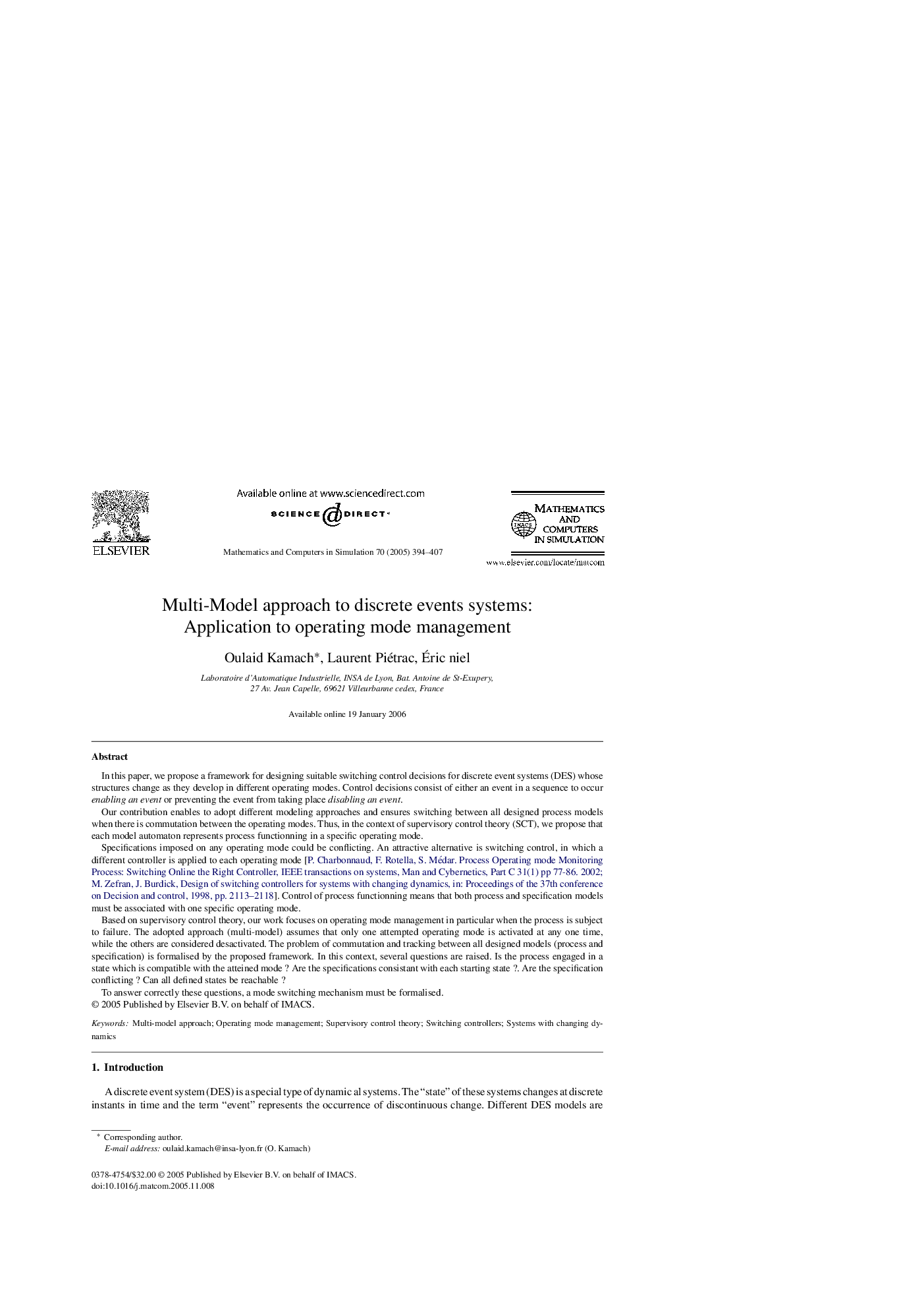| Article ID | Journal | Published Year | Pages | File Type |
|---|---|---|---|---|
| 1140923 | Mathematics and Computers in Simulation | 2006 | 14 Pages |
In this paper, we propose a framework for designing suitable switching control decisions for discrete event systems (DES) whose structures change as they develop in different operating modes. Control decisions consist of either an event in a sequence to occur enabling an event or preventing the event from taking place disabling an event.Our contribution enables to adopt different modeling approaches and ensures switching between all designed process models when there is commutation between the operating modes. Thus, in the context of supervisory control theory (SCT), we propose that each model automaton represents process functionning in a specific operating mode.Specifications imposed on any operating mode could be conflicting. An attractive alternative is switching control, in which a different controller is applied to each operating mode [[2] and [15]]. Control of process functionning means that both process and specification models must be associated with one specific operating mode.Based on supervisory control theory, our work focuses on operating mode management in particular when the process is subject to failure. The adopted approach (multi-model) assumes that only one attempted operating mode is activated at any one time, while the others are considered desactivated. The problem of commutation and tracking between all designed models (process and specification) is formalised by the proposed framework. In this context, several questions are raised. Is the process engaged in a state which is compatible with the atteined mode ? Are the specifications consistant with each starting state ?. Are the specification conflicting ? Can all defined states be reachable ?To answer correctly these questions, a mode switching mechanism must be formalised.
